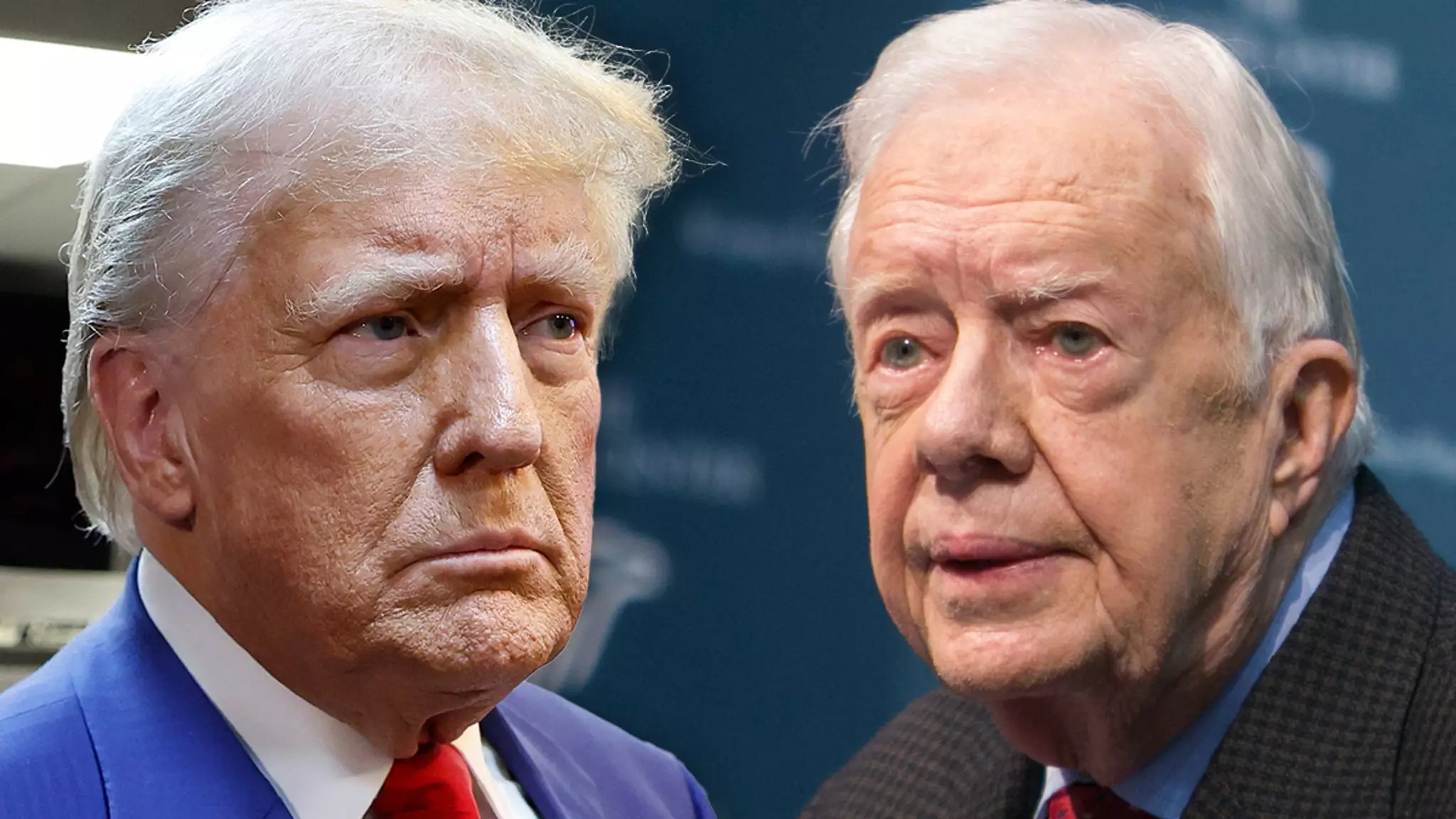The passing of former President Jimmy Carter at the age of 100 sparked a significant wave of retrospection, particularly in regard to political relationships that have often been turbulent. Donald Trump, the soon-to-be former president, took to his social media platform, Truth Social, to express his condolences and respect for Carter’s legacy. While such gestures are common following the death of notable figures, Trump’s tribute stands out as a poignant reminder of the complexities of political legacies and the evolution of public perception as time goes by.
Carter, whose presidency in the late 1970s was often marred by economic troubles and international crises, came to be viewed differently in hindsight. Trump acknowledged that every past president understands the weight of the role and the distinct challenges it entails. This sentiment evoked the broader themes of gratitude and respect often overlooked in the heated discourse of contemporary politics.
In his message, Trump emphasized that Carter “did everything he could to improve the lives of all Americans.” This praise is an interesting shift, especially considering the contentious relationship the two men shared during their respective political careers. Just two months prior, on Carter’s centennial birthday, Trump had made remarks about Joe Biden that were far from complimentary, implying that Carter was perhaps content in the company of more recent presidents. This juxtaposition begs further exploration: How do our perceptions of past leaders morph into a more favorable light, especially after their passing?
Carter’s decade-long commitment to humanitarian efforts and diplomacy post-presidency has certainly colored the way he is remembered today. Reflecting on Trump’s comments, one cannot ignore how political contexts and the actions of subsequent leaders shape the legacies of their predecessors.
As Trump extended his thoughts and prayers to the Carter family, the reflective nature of his words offered a glimpse into the shared humanity often overshadowed by partisan differences. The 24-hour news cycle and social media dynamics frequently reduce political leaders to their most divisive moments; however, during moments of collective mourning, the focus shifts from political ideologies to shared experiences of grief and remembrance.
Carter’s passing also resurrects discussions about the challenges faced by leaders, particularly in moments of national strife. His willingness to address difficult issues, coupled with his post-presidency efforts to champion various causes, certainly contributed to a reevaluation of his contributions to American society. As tributes from across the political spectrum began to pour in, Carter’s legacy increasingly highlights the potential for kindness and cooperation, rather than division—an aspect that all future leaders might aspire to foster.
Trump’s tribute, though it may appear politically motivated, serves as a vital reminder of the complexities behind leadership. Reflecting on Jimmy Carter’s life encourages us to appreciate the multifaceted journeys of those who have served in the highest office. In a time when unity feels particularly elusive, recognizing the shared struggles among these leaders can offer a glimmer of hope for a more cohesive future.

